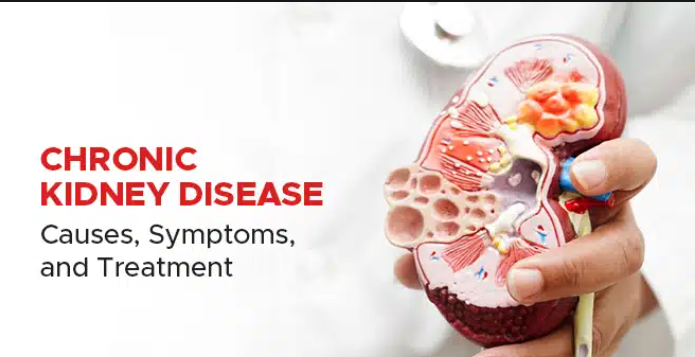The kidney disease are vital organs that clean the blood but are susceptible to damage and injury.
Our bodies have several vital organs that quietly toil away to keep us functioning properly. Without them we couldn’t live (unlike the spleen and gallbladder, which are two organs you can actually live without). Among these vital organs are the kidneys, two fist-sized organs that sit on either side of your spine below the ribs.
The kidneys are shaped like beans (kidney beans, naturally) and spend their days filtering the blood to remove waste. They also balance your electrolyte levels. Wastes removed from the blood by the kidneys are then passed into the urine and flow out of the body. All of the blood in your body flows through the kidneys several times each day to be cleansed. It’s a big job, and if your kidneys aren’t working right, that can lead to serious health problems. In fact, several kidney diseases can be life threatening.
Also read-Renal Failure : A Patient’s Guide To End-Stage Renal Failure And Its Symptoms
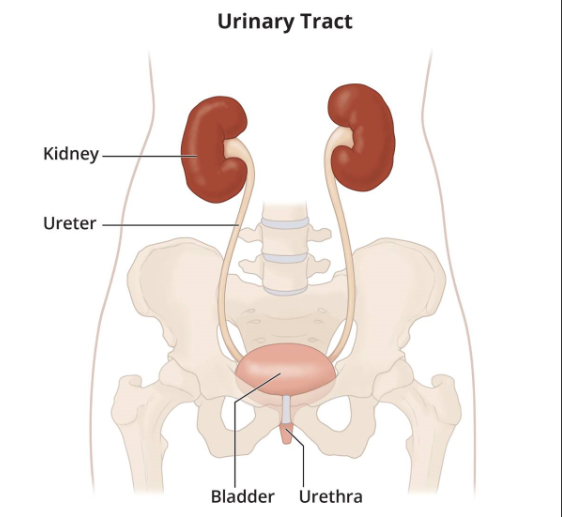
Types of kidney disease
Kidney disease is fundamentally caused by the organs’ incapacity to remove toxins from the blood. “Numerous conditions can lead to that point, but it will typically involve a reduction in glomerular function,” explains Dr. Brad Rovin, the director of the nephrology division at The Ohio State University Wexner Medical Center and a nephrologist. The kidneys’ glomeruli are microscopic filters that eliminate waste from the body. There may be an accumulation of waste and fluid in the body that causes illness if they aren’t functioning at their best or are prevented in some other way from carrying out their duties.
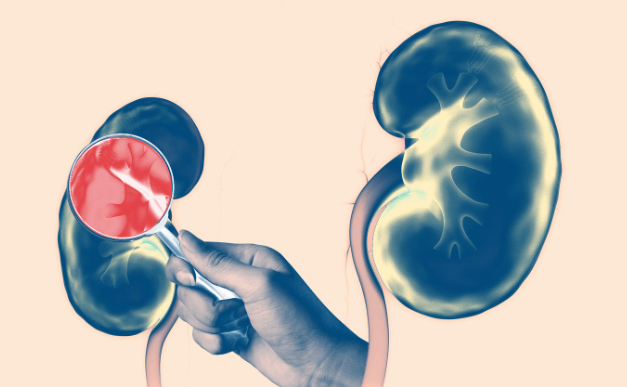
Causes
Chronic kidney disease can result from a number of causes, including:
- Elevated blood pressure. According to the National Kidney Foundation, the main factor contributing to chronic kidney disease is high blood pressure because it can damage blood vessels, which can lower the kidneys’ blood supply. The kidneys’ tiny filters, called glomeruli, are harmed by high blood pressure as well. People with high blood pressure “should be screened regularly for kidney involvement,” according to Rovin.
- Diabetes. Analogously, kidney disease develops as a result of the long-term effects of diabetes on the body. Many internal organs suffer cellular damage when their blood sugar levels are consistently elevated. Particularly vulnerable to this harm, the kidneys may cease to function correctly. Rovin points out that individuals with all forms of diabetes are impacted by the link between diabetes and kidney disease. Individuals diagnosed with either Type 1 or Type 2 diabetes should undergo routine renal function evaluations that include serum chemistries and creatinine measurements to ensure optimal kidney function. According to him, diabetics should routinely check their urine for protein.
- Cancer. Kidney cancer and other cancers that spread to the kidney can cause renal failure. Chemotherapy agents are one type of cancer treatment that can cause kidney damage as a side effect.
- Strep infection. Infection with the strep bacteria, if not properly treated, can lead to a variety of other issues, including inflammation of the kidneys that can impede their function.
- Vasculitis. This condition causes inflammation of the blood vessels. Because the kidneys are highly vascularized, they are sensitive to changes in the health of the vascular system.
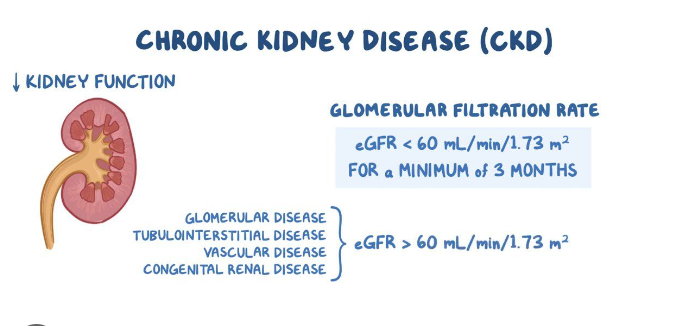
Symptoms
The symptoms of chronic kidney disease can sometimes be challenging to identify initially. “One of the major issues with kidney disease is a lot of time, patients have no symptoms when it starts out,” Rovin says. “It’s sort of silent. The kidney has a great capacity to compensate for loss of function,” and it may take a while before symptoms build to a noticeable level.
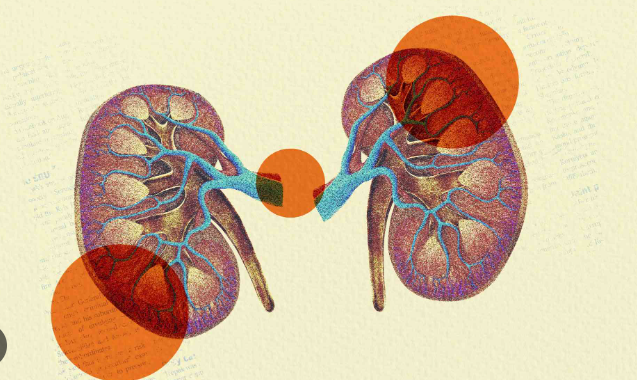
For people who are at higher risk of developing kidney disease, such as diabetics and those with a strong family history, screening tools may help spot the disease early. “A urine dipstick that looks for blood and protein in the urine” can help screen for the disease, Rovin says.
Other early warning signs of chronic kidney disease may include:
- Nausea and vomiting.
- Muscle cramps.
- Itching.
- Loss of appetite.
- Swelling in the lower extremities.
- Changes in volume of urine output.
- Difficulty sleeping.
- Breathlessness.
As the disease progresses and you proceed into kidney failure, more severe symptoms may develop, including:
- Severe abdominal and back pain.
- Diarrhea and vomiting.
- Fever.
- Nosebleeds.
- Rashes.
Diagnosis
If your doctor suspects that you have any kind of kidney disease, you’ll undergo a number of tests including:
- Urine test. This involves peeing in a cup and having the urine analyzed. One of the key indications that something is wrong with your kidneys is if there’s too much protein in your urine.
- Blood test. Your doctor will also likely order some lab work to look at your creatinine levels. Damage to the kidneys results in less ability to filter creatinine from the blood, so higher levels could signal a problem with the kidneys.
- Imaging tests. Depending on what’s going on, your doctor might also order ultrasound or MRI imaging tests to get a better look at the structures inside your kidneys.
- Kidney biopsy. Not all conditions will require a kidney biopsy, but some, including glomerulonephritis and cancer of the kidney, will likely entail a biopsy so your doctor can get a better understanding of what’s happening with the cells in your kidneys.
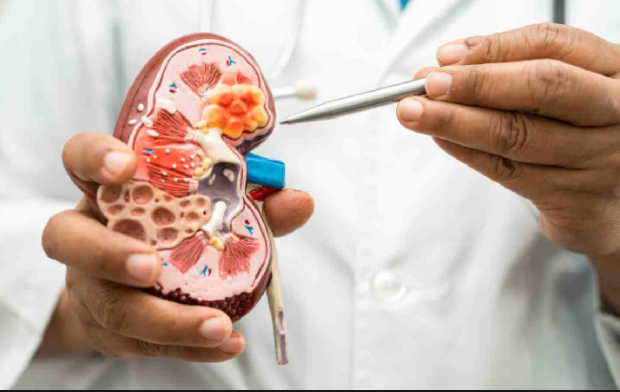
Treatment
With chronic kidney disease, treatment depends on the underlying cause and the stage at which it was diagnosed. The stages range from 1 to 5, with 1 being the earliest stage and five being end-stage kidney disease.
There is no cure for chronic kidney disease and treatment usually aims to control symptoms, impede complications and slow progression of the disease.
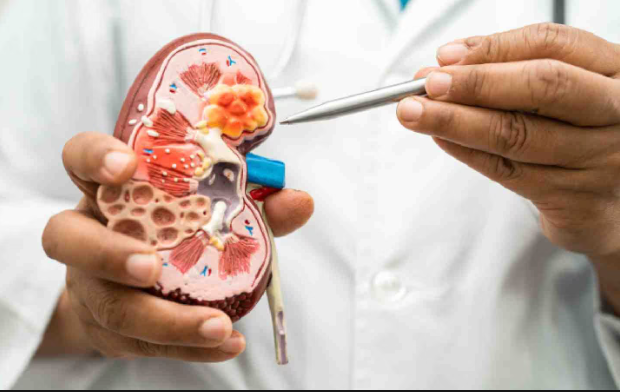
Treatment of earlier stage kidney disease typically focuses on:
- Reducing high blood pressure. Keeping your blood pressure under control can slow the progression of chronic kidney disease. “One of the most important treatments for any kind of kidney disease is to get your blood pressure under excellent control,” Rovin says. “Blood pressure that is not well-controlled is one of the major reasons that kidney disease can progress to failure and dialysis and transplantation. By controlling that blood pressure, we can slow the progressive kidney disease down and preserve native function as long as possible.” This means not only taking any blood pressure medication your doctor prescribes, but also exercising more and reducing salt intake.
- Reducing cholesterol levels. Because high cholesterol can contribute to cardiovascular disease controlling these if they’re high may slow the progression of kidney disease.
- Treating anemia. Low iron levels are a problem with some kidney disease patients, and boosting levels can help improve symptoms of fatigue and weakness that might develop alongside kidney disease.
- Reducing swelling. People with kidney disease have difficulty clearing excess fluid from the body, so diuretics that help move that fluid along may be prescribed.
- Protecting the bones. Calcium and vitamin D supplements can help reduce the risk of bone fractures that can arise because of kidney disease.
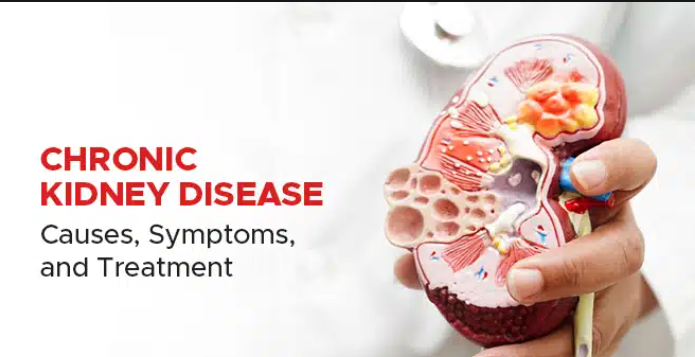
Also read-Heart Attacks : A Patient’s Guide To Heart Attacks And Its Symptoms
images source: Google
Disclaimer: The opinions and suggestions expressed in this article are solely those of the individual analysts. These are not the opinions of HNN. For more, please consult with your doctor.







